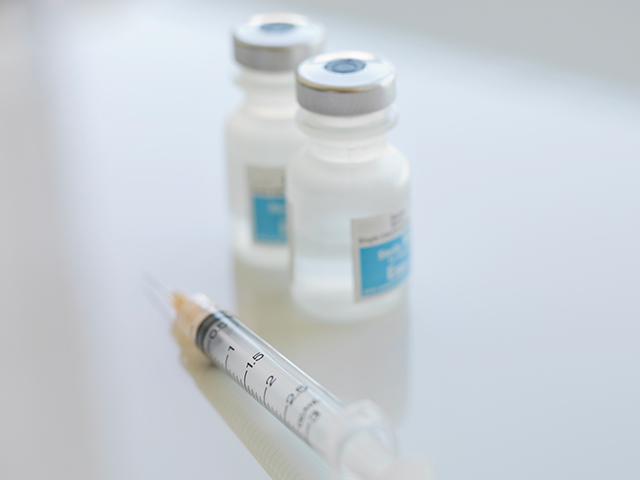
On June 27, 2017, my son Alec was found dead, alone in his Minneapolis apartment. It shouldn’t have happened.
Alec had Type 1 diabetes, a serious condition that is manageable with access to insulin and proper supplies. But Alec turned 26 years old on May 20 of last year, which meant that his coverage under my health insurance policy ended a few days later. Alec had a full-time, steady job. But, like a lot of US workers, he did not have good health insurance offered through his employer.
For Alec and others with diabetes, this presents a deadly situation. Many people with type 2 diabetes need regular access to insulin to live; all persons with Type 1 do. Insulin is a 95-year-old drug whose discoverers sold their patents for $1 each, but its price has increased over 1,000 percent since the late 1990s. A vial of the same insulin that was once sold for around $25 can now cost patients like Alec nearly $300, and many people need multiple vials per month to survive.
The pharmaceutical companies that sell insulin won’t disclose any details, but it is likely that this same vial is manufactured for just a few dollars. Which means that those companies are making huge profits and paying huge CEO salaries. The three insulin manufacturers have raised their prices in lockstep for many years now, prompting a class-action lawsuit and criminal investigations into collusion. Additionally, the insurance industry is also complicit in the drug pricing scheme.
For Alec, this meant that his insulin and supplies cost almost $1,300 a month. He and I together researched for months in advance about his health insurance options. They weren’t good. The best plan we found would cost him $450 a month for the premium with a whopping $7,600 deductible. That deductible meant he would be paying out-of-pocket for his medicine for many months anyway, so he decided to go without the plan until he could find a different job with benefits.
With the cost so high, Alec tried to ration his insulin. I have since learned that this is not uncommon. Globally, half of the people who need insulin can’t reliably get access to it. With 6 million people in the US insulin-dependent, and nearly 40 percent of Americans uninsured or facing high deductibles that leave their medicine costs uncovered, the crisis is occurring right here, too.
Endocrinologists here in the US report that as many as one in five of their patients are not able to afford their insulin. For many persons with diabetes, that means they land in the emergency room with diabetic ketoacidosis. For others, like Alec, they never get there. Just 27 days after his coverage under my insurance ended, I received the call no parent ever wants to get.
As you would imagine, my family and I are still grieving. But I’ve decided that sharing our story may help prevent someone else from going through what Alec did. There are a lot of proposals to increase access to affordable health coverage and to lower the price of medicines, including forcing drug companies to be transparent about their research costs and profits, and allowing Medicare to negotiate down the price it pays for prescription drugs. To me, they all boil down to one theme: Access to insulin, and other life-essential medicines, is a human right.
The inventor of insulin, Frederick Banting, believed that. When he was asked why he gave away his patent for $1, he replied, “Because insulin does not belong to me. It belongs to the world.” That spirit is being violated today, where there are thousands of GoFundMe pages devoted to people like Alec, desperately trying to cobble together the money they need for their monthly insulin.
There are a lot of good people working to change this, including US lawmakers. But it seems clear to me that significant movement toward universal access to essential medicines will only come when the affected patients and their loved ones help lead the way.
So I was happy to see that people with diabetes in Nevada were able to help push through a law that requires transparency in insulin pricing there. And that is why I support the patient group T1International’s demand that insulin manufacturers disclose the profits they are making off of each vial and reverse their unjustified price increases. That is why I shared Alec’s story at a recent demonstration led by Type 1 diabetes patients outside the headquarters of insulin manufacturer Eli Lilly and Company, demanding increased transparency and lower prices.
As I told the patients and activists gathered there, my Alec was the best son anyone could ask for. He was loved by so many and I am so proud to have been his mom for the short 26 years I had with him. But he should still be here. I should not have buried my son at 26 because he couldn’t afford the one thing in life that was created to keep him alive.
Press freedom is under attack
As Trump cracks down on political speech, independent media is increasingly necessary.
Truthout produces reporting you won’t see in the mainstream: journalism from the frontlines of global conflict, interviews with grassroots movement leaders, high-quality legal analysis and more.
Our work is possible thanks to reader support. Help Truthout catalyze change and social justice — make a tax-deductible monthly or one-time donation today.